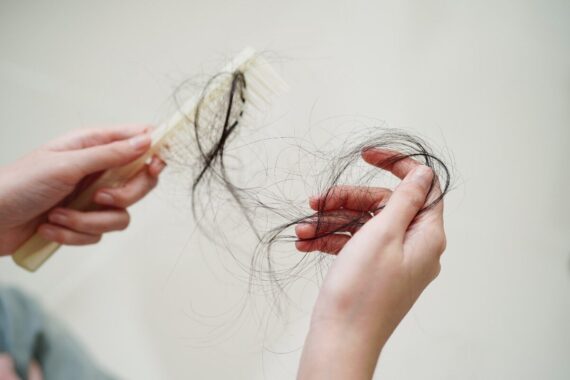NICE has said thousands of people with severe hair loss could be eligible for a new approved treatment for alopecia areata.
Ritlecitinib is a daily medicine that has been shown in clinical trials to reduce inflammation and hair loss at the follicle for up to two years, final draft guidance says.
The NHS approval of the treatment – a JAK inhibitor – for people aged 12 years and older comes after an initial rejection by the committee in September.
NICE said the position had changed after a public consultation, additional information from drug manufacturers Pfizer and an improved discount on the cost of the medicine. It is thought up to 14,000 patients could benefit.
The list price of the drug is £949.41 per pack of 30 capsules but the details of the commercial agreement with the NHS is confidential.
In discussions, the committee noted there is no standard treatment for severe alopecia areata, and access to treatment varies widely. Hair loss can cause severe psychological distress.
Another JAK inhibitor, baricitinib, is licensed for severe alopecia areata in Great Britain but is not available for severe alopecia areata on the NHS, NICE said.
Helen Knight, director of medicines evaluation at NICE, said: ‘Our committee heard how severe alopecia areata can have a significant impact on people’s health and quality of life.
‘I’m delighted that we are now able to recommend this innovative treatment, the first time a medicine for severe alopecia areata has been recommended by NICE for use in the NHS.
‘It is especially pleasing that we have been able to recommend ritlecitinibjust 16 weeks after it was granted a licence by the Medicines and Healthcare products Regulatory Authority (MHRA), demonstrating NICE’s commitment to getting the best care to patients fast.’
Sue Schilling, the chief executive of Alopecia UK, said the decision was a monumental day for those with the condition.
‘For far too long, patients with alopecia areata have gone without a licensed treatment option available via NHS pathways.
‘If new treatments are only available privately, it becomes a case of the “haves and the have nots”. This latest NICE recommendation will go some way to address this.’
But she said people with alopecia still face substantial barriers including difficulties in getting a dermatology referral from their GP, unacceptable dermatology waiting times, and even some NHS trusts making the decision not to allow dermatology appointments for alopecia patients.
‘There is no longer the excuse of there being no licensed treatment available. I urge key decision-makers within the NHS to keep referral pathways open for patients with alopecia areata.’
Pulse October survey
Take our July 2025 survey to potentially win £1.000 worth of tokens















Yet again this is announced in the media without warning, sparking a stampede of balding hopefuls demanding a referral from their baffled GPs, who have no criteria to work with.
And even if discounted, £950 per month is simply unaffordable by an NHS where every A&E department looks like a MASH casualty station. It’s enough to make you tear your hair out……